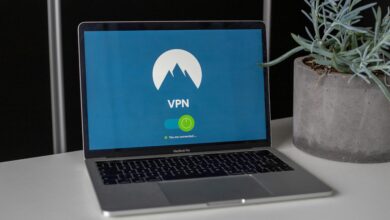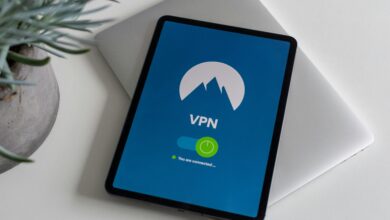How to Choose a VPN with a No-Logs Policy

In an era where online privacy is increasingly under threat, Virtual Private Networks (VPNs) have become essential tools for safeguarding your digital activities. A key feature of a trustworthy VPN is its no-logs policy , which ensures that the service does not track, store, or share your online activity. However, not all VPNs are created equal, and some may claim to have a no-logs policy while still collecting user data. This guide will walk you through how to choose a VPN with a genuine no-logs policy, ensuring your privacy remains protected.
1. Understand What a No-Logs Policy Means
A no-logs policy means that the VPN provider does not record or store any information about your online activities, including:
- Websites visited
- IP addresses
- Connection timestamps
- Bandwidth usage
- DNS queries
This is crucial because if a VPN logs your data, it could potentially be handed over to third parties, such as governments, advertisers, or hackers.
Why Is a No-Logs Policy Important?
- Privacy Protection: Ensures your browsing history and personal information remain private.
- Security: Prevents sensitive data from being exposed in case of a data breach.
- Freedom: Allows you to bypass censorship and access geo-restricted content without fear of being tracked.
2. Research the VPN Provider’s Reputation
Not all VPN providers are transparent about their logging practices. To ensure you’re choosing a reliable service, research the company’s reputation and commitment to privacy.
A. Check Independent Audits
Reputable VPNs often undergo independent audits by cybersecurity firms to verify their no-logs claims. Look for providers that publish audit results on their websites. Examples include:
- ExpressVPN: Audited by PwC to confirm its no-logs policy.
- NordVPN: Regularly audited by firms like Deloitte and VerSprite.
B. Read User Reviews
Look for feedback from real users about the VPN’s performance, transparency, and adherence to its no-logs policy. Trustworthy review platforms like Reddit, Trustpilot, and tech blogs can provide valuable insights.
C. Investigate Past Incidents
Research whether the VPN has ever been involved in scandals or breaches related to logging. For example:
- Some providers claimed to have no-logs policies but were later found to log user data during legal investigations.
3. Analyze the Privacy Policy
The VPN’s privacy policy is a critical document that outlines what data it collects, stores, and shares. Here’s how to evaluate it:
A. Look for Clear Language
A legitimate no-logs policy should explicitly state that the provider does not collect or store any identifiable user data. Avoid vague terms like “minimal logging” or “metadata collection.”
B. Identify Jurisdiction
The country where the VPN is headquartered affects its ability to maintain a true no-logs policy. Some countries are part of surveillance alliances like Five Eyes , Nine Eyes , or Fourteen Eyes , which require companies to share user data with governments. Opt for VPNs based in privacy-friendly jurisdictions, such as:
- Switzerland (e.g., ProtonVPN)
- Panama (e.g., NordVPN)
- British Virgin Islands (e.g., ExpressVPN)
4. Verify Transparency Reports
Many reputable VPNs publish transparency reports detailing:
- The number of government requests they receive for user data.
- How they respond to these requests.
If a VPN receives frequent requests but has no data to hand over due to its no-logs policy, this demonstrates transparency and reliability.
5. Test the VPN’s Claims
While researching is important, testing the VPN yourself can provide additional assurance.
A. Use DNS Leak Tests
Perform a DNS leak test to ensure your traffic is routed through the VPN server and not leaking your real IP address. Websites like dnsleaktest.com can help with this.
B. Conduct Speed Tests
A reliable VPN should offer consistent speeds without throttling or interruptions, even when enforcing a strict no-logs policy.
C. Try Free Trials or Money-Back Guarantees
Most reputable VPNs offer free trials or money-back guarantees. Use this opportunity to test the service and verify its claims before committing.
6. Consider Additional Security Features
While a no-logs policy is paramount, other security features enhance your protection:
A. Kill Switch
A kill switch automatically disconnects your device from the internet if the VPN connection drops, preventing accidental exposure of your real IP address.
B. AES-256 Encryption
Ensure the VPN uses military-grade encryption (AES-256) to secure your data.
C. Multi-Hop Connections
Some advanced VPNs offer multi-hop connections, routing your traffic through multiple servers for added anonymity.
D. Ad Blockers and Malware Protection
Built-in ad blockers and malware filters can further protect your privacy by blocking intrusive ads and malicious websites.
7. Compare Pricing and Plans
While cost shouldn’t be the sole deciding factor, it’s worth considering whether the VPN offers good value for money. Beware of extremely cheap or free VPNs, as they may monetize your data instead of protecting it.
A. Subscription Length
Longer subscriptions often come with discounts, but avoid locking yourself into a plan unless you’re confident in the provider.
B. Payment Options
For maximum anonymity, choose a VPN that accepts cryptocurrency or gift card payments.
8. Recommended VPNs with Strong No-Logs Policies
Here are some trusted VPNs known for their robust no-logs policies:
A. ExpressVPN
- Headquarters: British Virgin Islands
- Features: AES-256 encryption, kill switch, independently audited no-logs policy.
- Best For: Speed and global server coverage.
B. NordVPN
- Headquarters: Panama
- Features: Double encryption, strict no-logs policy, independently audited.
- Best For: Advanced security features.
C. ProtonVPN
- Headquarters: Switzerland
- Features: Free tier available, strong no-logs policy, Secure Core architecture.
- Best For: Privacy-conscious users.
D. Surfshark
- Headquarters: Netherlands
- Features: Unlimited device connections, no-logs policy, budget-friendly pricing.
- Best For: Families and small businesses.
9. Red Flags to Watch Out For
Avoid VPNs that exhibit the following red flags:
- Free Services: Many free VPNs log and sell user data to cover operational costs.
- Unclear Privacy Policies: If the policy is ambiguous or hard to understand, proceed with caution.
- Based in Surveillance Alliances: Providers in Five Eyes, Nine Eyes, or Fourteen Eyes countries may be compelled to log user data.
- Lack of Transparency: Companies unwilling to disclose details about their infrastructure or undergo audits are less trustworthy.


